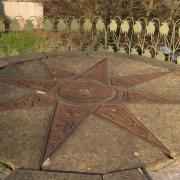Powerful new drama goes on tour across Yorkshire

Hedley Verity was a quiet man with a slow but deadly arm. Unassuming and modest in everyday life, he metamorphosed whenever he donned his cricket whites into a demon bowler who destroyed batsmen with an assassin’s precision. More than a century after his birth – and 72 years after his untimely death – he still holds the world record for taking ten wickets for just ten runs in a match against Nottinghamshire in 1932. He also remains the only Yorkshire bowler to take all ten wickets in an innings on two separate occasions.
Needless to say, the man is a cricketing legend, but he’s also remembered for his bravery in another field, where the stakes were higher and, ultimately, cost him his life.
A powerful new drama, which goes on tour this month and includes a performance at the county’s iconic home of cricket, Headingley, tells the story behind Hedley Verity’s last ever game on the eve of the Second World War.
The Last Match is the story of the 1939 county cricket match between Yorkshire and Sussex where the Leeds-born bowling legend took seven wickets for nine runs in a phenomenal game which saw Yorkshire storm to victory as the clouds of war gathered over Britain.

As well as detailing the dramatic match, it also explores the emotions of a generation clinging on to the last moments of peace in the full knowledge that the crisis of war was on their doorstep.
The performance at Headingley on September 1st will mark 76 years to the day since the match between Yorkshire and Sussex took place, two days before Britain declared war on Germany.
This was, sadly, the last match ever played by Verity. He joined the Green Howards in 1940 as a second lieutenant and was later promoted to captain. Three years later he died of his wounds after fighting in Sicily.
The Last Match has been written and directed by Yorkshire duo, author and former head of BBC Yorkshire Colin Philpott and film director and digital artist Kit Monkman. A shorter version of the play was piloted to great acclaim at Scarborough Cricket Festival last year.
‘As a cricket fan I have always been fascinated by Hedley Verity and the final match he played against the powerful backdrop of a country entering into war,’ said Colin.
‘But this is a story which transcends cricket. It’s about people reacting to a moment of crisis and their differing attitudes to duty.’
Danny Reuben of Yorkshire County Cricket Club said: ‘We are delighted to support this exciting project which not only celebrates a truly magnificent Yorkshire cricketer but also commemorates an important moment in British history.’ w
The play goes on tour from August 20th in Sussex and Yorkshire. Tickets are on sale now from thelastmatch.com
The last man
Hedley Verity was a Yorkshire and England cricketer who is generally regarded as one of the greatest slow left arm bowlers in the game’s history.
He was born in Headingley, Leeds, in 1905, the eldest son of Hedley Verity, who worked for a local coal company, and Edith Elwick, a Sunday School teacher.
He married Kathleen Alice Metcalfe, a bookbinder, in 1929. The couple, who had two sons Wilfred and Douglas, has known each other as children in Headingley and met again at a Rawdon youth club social event.
He played for Yorkshire from 1930 until 1939 and appeared in 40 test matches for England.
In 1931, his first full season, he achieved the rare feat of taking all ten wickets in an innings against Warwickshire. The following year, he did it again against Nottinghamshire, while conceding just ten runs.
Throughout his first-class career, he took 1,956 wickets at an average of 14.90.
At the outbreak of the Second World War, he joined the Green Howards and died in 1943 from wounds sustained during the Allied invasion of Sicily.
He was buried with full military honours in Caserta, Sicily, where several Yorkshire players, as well as MCC team captain Len Hutton, have since visited his grave to pay their respects.



























